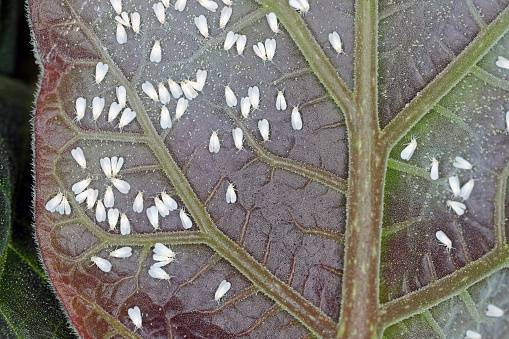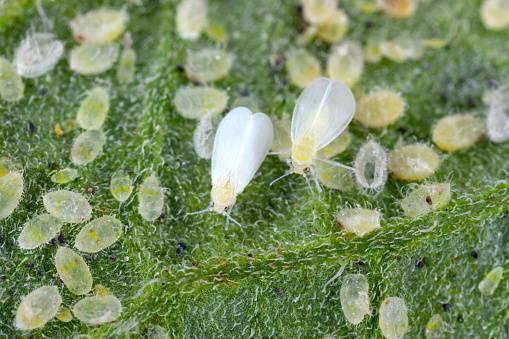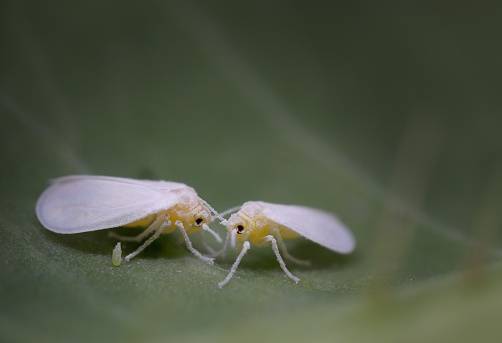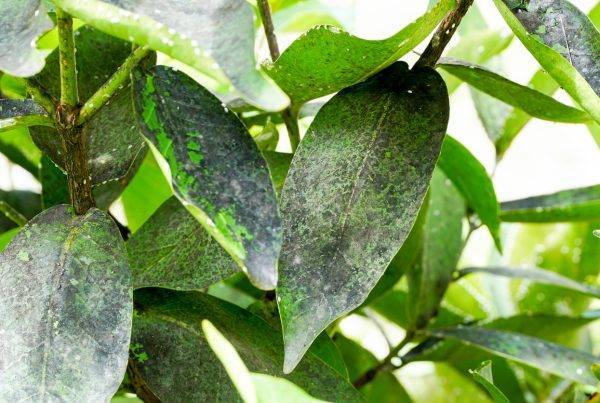Whiteflies are a common pest. Find out everything you need to know about these pests in this article.
| What Are They | What They Do | Why are they on my plant || Identify |Treat | Prevent

What are Whiteflies?
Whiteflies are soft bodied winged insects, despite their name, they are more closely related to mealybugs and aphids than true flies. Measuring in at between 1-2mm, these tiny flies are hard to spot with the naked eye. A single whitefly female can lay over 400 eggs. Their life cycle can last anywhere between 4-6 weeks.
What do they do?
They feed on the sap of plants by piercing the leaves and sucking out the sap. Damage shows as yellowing leaves, wilting, stunted growth. As they are so tiny, they can often multiply quickly before being spotted. They can cause serious damage or even kill your plants.
Why are they on my plant?
They love warm and humid environments. Over fertilization can often lead to whitefly as they favor nitrogen rich plants.
How to Identify Whiteflies
Although hard to see with the naked eye, these tiny flies resemble moths. They can be easily identified by shaking or touching the plant. They will fly a short distance before returning to the plant. Large infestations will appear as a white cloud when disturbed. They are often found hiding under leaves but can feed on all parts of the plant above the soil line.
Treatment
It can be hard to get rid of them completely. Using a combination or even all three methods below would be advisable.
A simple Castille soap and water solution is enough to get rid of adult whiteflies. Mix in a spray bottle and spray your plant thorougly, being sure to get the undersides of leaves and into any crevices. This can be repeated every few days as new whiteflies emerge.
Yellow sticky traps are effective against the adult whitefly.
A mix of Neem oil, Castille soap and water is also effective. This will also coat the eggs and larvae and smother them. You can use this foliar spray once a week. Spray liberally ensuring to get the undersides of leaves.
Preventing Whiteflies
To prevent them, don’t over fertilize your plants. Try to ensure there is adequate air circulation in any warm and humid areas that you keep plants.

Happy Gardening!






